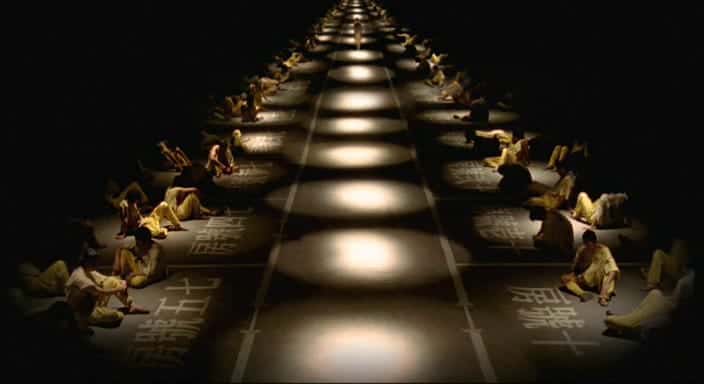Lebanese director and screenwriter Ghassan Salhab's movies unfold like essays, exploring the way individuals operate in the socio-political circumstances of their environment. His six feature films are hypnotic and explorative, trying to make sense of a world faced with the threat of war, and the internal struggles that occur in the minds of troubled individuals in an oppressive society. Salhab's third full length effort, “The Last Man,” is no different: although appearing on the surface as a classic vampire movie, it explores the inability of the Lebanese government to effectively deal with immediate threats within their country when faced with the fear of rapidly-escalating dilemmas occurring elsewhere in the Middle East.
The Last Man is screening at ALFILM

Khalil lives a peaceful life, alternating between his profession as a doctor, his passion with a female lover, and the hobby of deep sea exploration which he commits to in his spare time. The simple ways of his lifestyle are quickly disrupted when, all of the sudden, victims of a serial killer begin appearing in the hospital with one thing linking them: A deep bite-mark on the sides of their necks. Meanwhile, Khalil begins to question his own mental and physical stability—his pupils take on a sanguine tint, he begins to loathe sunlight, and he develops an unquenchable thirst for blood. As Khalil's life begins to crumble before his very eyes, he decides to go incognito and solve the mysteries to which he appears inexorably linked to.
What Ghassan Salhab truly explores in his making of “The Last Man” is the way the fear of a threat of nearby conflict can corrupt a nation to the point where it becomes incognizant of its own internal issues. Khalil fails to treat his patients properly and delays their appointments; the doctors of Khalil's hospital cannot complete their autopsies effectively, failing to draw conclusions upon the murder victims; when Khalil develops an insatiable thirst for blood and begins stealing blood samples from the hospital, a janitor is the only individual to notice. Meanwhile, the day-to-day lives of citizens in “The Last Man” seem desensitized by the Lebanese government's intense military presence, and ongoing news updates from areas of conflict surrounding the country. Regardless of where Khalil travels, TV newsreels and radio headliners consistently expose him to incidents regarding the Israel-Palestine conflict and the presence of the American military in Iran. There is a general fear in the air of Lebanon, and people are so preoccupied by government and military-related concerns that they barely have control of their own lives.
“The Last Man” is the kind of film which relies heavily on its central role, and Carlos Chahine puts on a convincing performance as the alienated protagonist Khalil, trying to come to terms with his strange new reality. For the most part, Ghassan Salhab's directorial style is ominously entrancing, with slow transitions where shots fade into one another, and long scenes featuring Khalil aimlessly wandering the desolate city streets in the night. Although rare, there are moments where Salhab's direction feels aimless in and of itself, with a few scenes that feel a little too drawn-out, potentially arousing frustration in less patient viewers. Fans of the vampire mythos also might find some inconsistencies in plot; at one point early in the film Khalil expresses frustration at exposure to the sun, but later on he walks in broad daylight, as though no longer affected by its rays.

Although sometimes painfully slow in its execution, “The Last Man” is nonetheless an enjoyable watch for its unique plotline and socio-political relevance. Those who enter their viewing expecting a violent and action-packed vampire adventure are sure to be disappointed, but might leave with a refined understanding of Lebanon and its relation to its neighbors in the Middle East.















